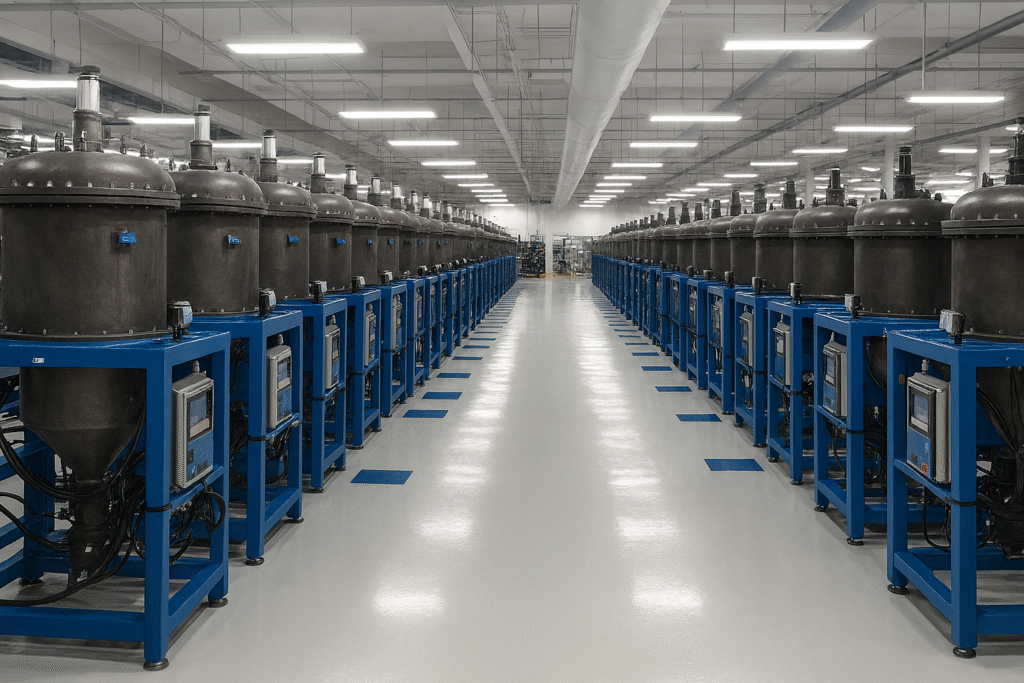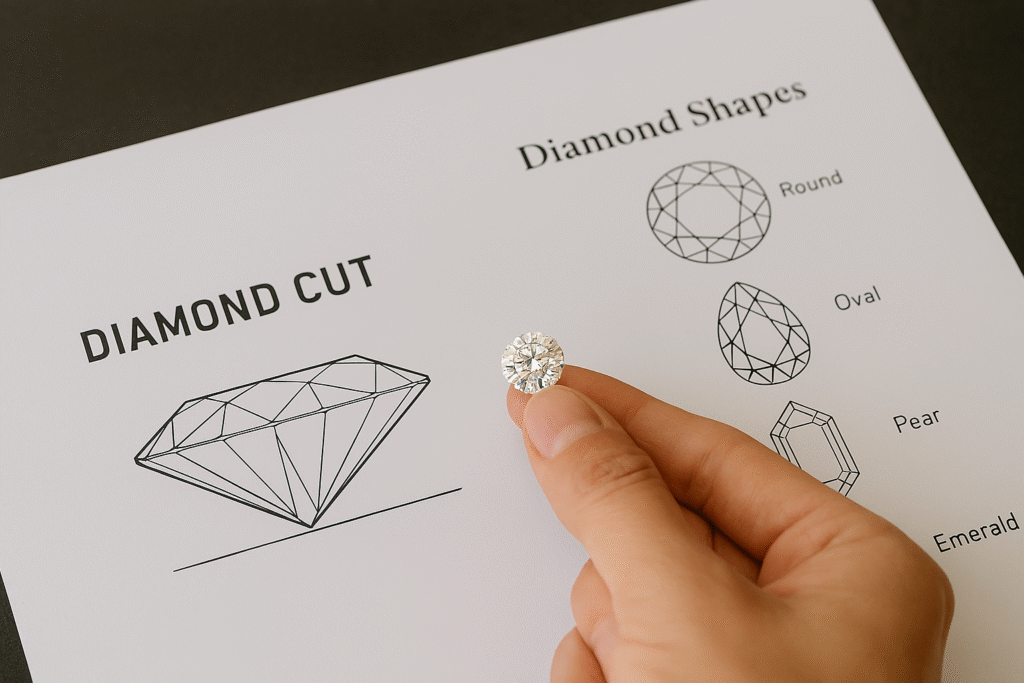KIRA Jewels, the world’s largest grower of CVD lab-grown diamonds, has announced a major expansion. The company has scaled from 2,600 to 4,000 CVD reactors, making it the most dependable supplier of sustainable lab-grown diamonds worldwide.
Monthly Production Capacity
- 250,000 polished carats produced each month
- 1 million sq. ft. solar-powered facility in India
- Powered by 75 MW solar energy, doubling to 150 MW by 2026
- Over 8,000 skilled artisans ensuring precision and craftsmanship
“The key is reliability,” said a KIRA spokesperson. “Our partners trust us because every diamond is grown, cut, and polished in-house with full transparency.”
Largest U.S. Inventory of Lab-Grown Diamonds
KIRA Jewels maintains the largest lab-grown diamond inventory in the U.S., with:
- 150,000 certified stones available for next-day delivery from New York
- Over 250,000 certified diamonds globally across all shapes, sizes, and grades
- 4,700+ partners worldwide, from manufacturers and designers to retail chains and independent jewelers
This vertical integration ensures consistent quality, sustainability, and scalability.
Certifications and Sustainability
- SMETA and SEDEX certified operations
- Solar-powered growth with reduced carbon footprint
- Ethical sourcing and production chain
FAQ: KIRA Jewels Expansion
Q: Why is KIRA expanding to 4,000 CVD reactors?
A: To meet rising global demand and ensure partners get consistent, high-quality diamonds with reliable supply.
Q: How many carats does KIRA produce every month?
A: Currently 250,000 polished carats, making it the largest CVD lab-grown diamond grower in the world.
Q: What makes KIRA different from other lab-grown diamond companies?
A: Unlike many distributors, KIRA is fully vertically integrated, producing every diamond in-house. This ensures quality, transparency, and long-term trust.
Q: Does KIRA follow sustainable practices?
A: Yes. The facility runs on 75 MW solar power, expanding to 150 MW, and holds SMETA and SEDEX certifications.
Industry Recognition
- Backed by the Kiran family’s four-decade diamond legacy
- Recognized as the most scalable lab-grown diamond supplier worldwide
- Trusted by 4,700+ global partners
Suggested Reading:
When learning about diamond certifications, check the guide on Understanding GIA and IGI Certificates.
To explore more about sustainable jewelry, check the article on Eco-Friendly Diamonds vs. Mined Diamonds.
For buyers in the U.S., read: Where to Buy Lab-Grown Diamonds in New York.
Retailers can also explore Jewelry Industry Insights section for updates.
Small Luxury Hotels FAQ
Introduction
This small luxury hotels FAQ answers common questions about boutique stays. It explains definitions, differences with large chains, and which services to expect. In addition, it covers family options, sustainability, and tips on finding the right property.
What defines a small luxury hotel?
- Fewer than 100 rooms.
- Personalized attention and privacy.
- Strong links to local design.
- Locations in unique urban or rural areas.
As a result, travelers often choose them for a more intimate experience. Moreover, their distinctive style sets them apart from standardized hotels.
Why choose a small luxury hotel?
Personal service
Staff remember guest details, therefore creating a sense of familiarity.
Calm spaces
Unlike large hotels, these properties feel quieter, so you can relax more easily.
Local culture
For example, menus highlight regional produce, and interiors reflect local crafts.
In addition, many guests return because the experience feels authentic.
How do small luxury hotels differ from large chains?
Guest experience
Small hotels provide tailored attention, while chains rely on uniform systems.
Property identity
Each boutique hotel has its own theme. On the other hand, large chains repeat formats worldwide.
Dining approach
Menus change seasonally and locally. Therefore, guests enjoy fresh variety instead of standard global menus.
Are small luxury hotels only for leisure stays?
Business features
- Lounges double as meeting rooms.
- Private dining options support work dinners.
Digital needs
- Fast Wi-Fi supports remote work.
- Quiet spaces help concentration.
Because of these advantages, small luxury hotels appeal to both business and leisure travelers.
What services can you expect?
- Concierge services for tours and dining.
- Fine dining menus with seasonal ingredients.
- Spa and wellness treatments.
- Added extras like minibars and welcome gifts.
Moreover, services shift depending on location. For example, a city hotel might offer cultural tours, while a rural retreat offers farm experiences.
Are small luxury hotels family-friendly?
Options for families
- Connecting rooms for parents and children.
- Child-friendly amenities such as menus or games.
Adults-only stays
- Some properties focus on privacy.
- Guests find peaceful, child-free environments.
Therefore, always check booking policies, because each hotel sets its own approach.
Do these hotels support sustainability?
Sourcing and dining
Farm-to-table meals reduce transport impact. In addition, guests enjoy fresher produce.
Environmental focus
Plastic use is restricted, while refillable bottles are encouraged. Smart energy systems reduce wastage.
Local involvement
Hotels support the community by hiring regionally. As a result, growth extends beyond the property.
How do you find the right small luxury hotel?
Define needs
Decide if food, spa, culture, or privacy is your top priority.
Check guest feedback
For example, repeat reviews about service often signal consistency.
Compare value
Packages may include meals, transfers, or early check-in. Therefore, higher prices can still deliver stronger value.
Are small luxury hotels worth the price?
Value of service
Guests pay for attention, comfort, and privacy. Moreover, experiences feel tailored and unique.
Extras add value
Some hotels include exclusive experiences or benefits. Finally, weigh these extras against nightly rates.
As a result, many travelers feel these hotels justify their price when quality matters most.



